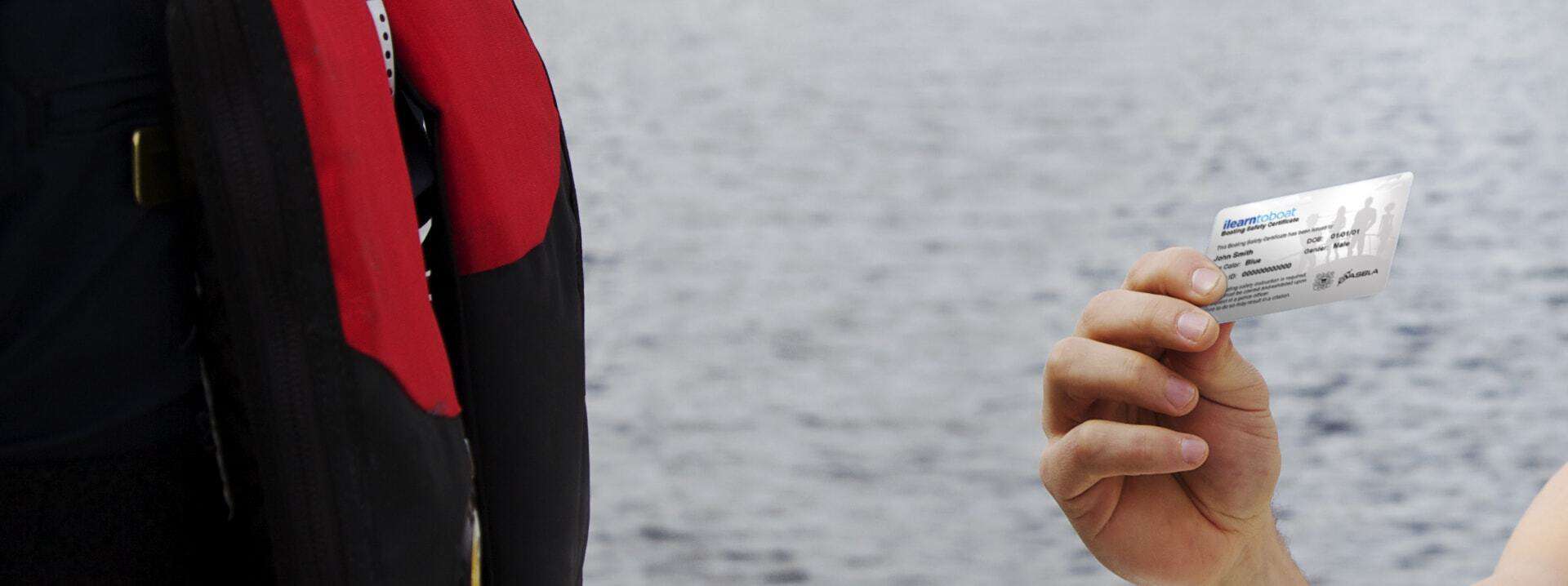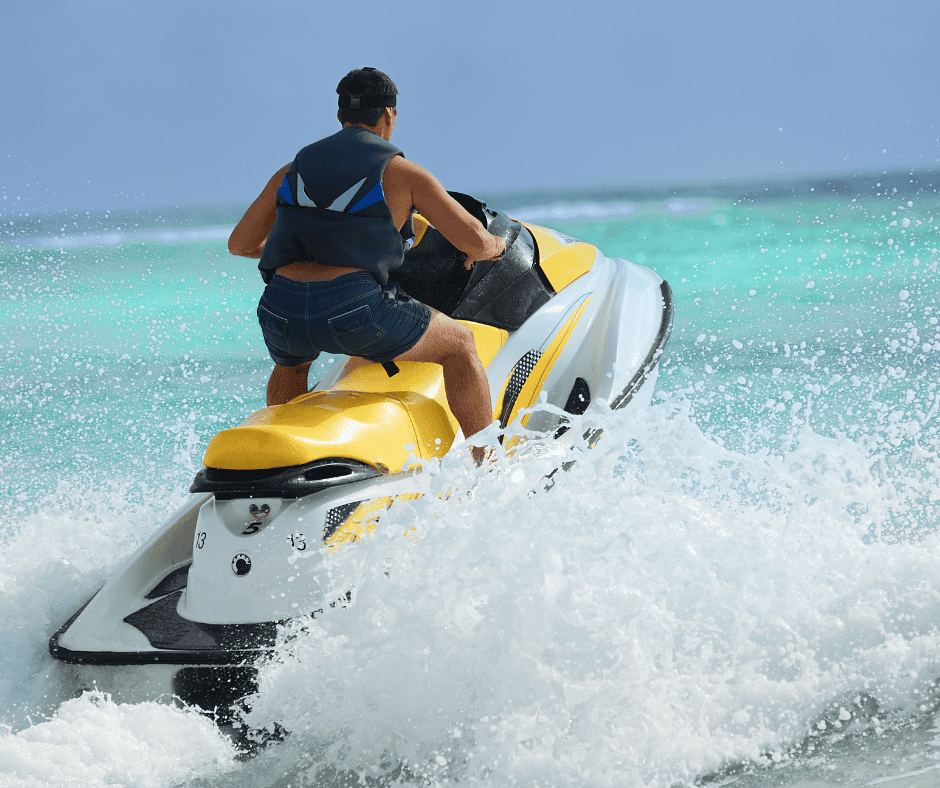Jet skiing is a thrilling water sport that has gained immense popularity over the years. The feeling of gliding across the water at high speeds, with the wind in your hair and the sun on your face, is truly exhilarating. However, like any other activity involving vehicles, there are certain rules and regulations that need to be followed to ensure safety on the water.
Licensing is one such requirement for jet skiing. Just like driving a car or operating a boat, obtaining a license for jet skiing is necessary to ensure that individuals have the knowledge and skills needed to operate these powerful machines safely. This article will delve into the different types of licenses available, safety training requirements, legal obligations in various states, misconceptions about licensing, consequences of operating without a license, and much more.
Key Takeaways
- Jet skiing requires a license in most states, and operating without one can result in fines and legal consequences.
- There are different types of jet ski licenses, including a basic license and a more advanced license for racing or commercial use.
- Safety training is crucial for jet skiing, and many states require completion of a safety course before obtaining a license.
- Age and experience can affect licensing requirements, with some states requiring a minimum age and/or hours of experience on the water.
- Alternatives to jet skiing for those without a license include paddleboarding, kayaking, and other non-motorized water sports.
Understanding the Different Types of Jet Ski Licenses
When it comes to jet ski licenses, there are typically two main types: personal watercraft (PWC) licenses and boating licenses with PWC endorsements. A PWC license allows individuals to operate only personal watercrafts such as jet skis or wave runners. On the other hand, boating licenses with PWC endorsements grant individuals permission not only to operate jet skis but also other types of boats.
The requirements for obtaining these licenses may vary depending on your location. In some states or countries, you may need to pass a written exam covering topics such as navigation rules and safety regulations before being granted a license. Other places might require you to complete an approved boater education course before taking an exam.
The Importance of Safety Training for Jet Skiing
Safety should always be paramount when engaging in any recreational activity involving vehicles or machinery – especially when it comes to high-speed activities like jet skiing. Safety training plays a crucial role in ensuring that both experienced riders and beginners understand how to handle their craft properly while minimizing risks.
There are various types of safety training available for jet skiers. One popular option is the Personal Watercraft Safety Course, which covers topics such as navigation rules, emergency procedures, and proper use of safety equipment. This course not only provides valuable knowledge but also helps individuals develop the necessary skills to handle unexpected situations on the water.
Another important aspect of safety training is learning how to properly operate a jet ski. Understanding how to start and stop the engine, maneuver in different conditions, and perform basic maintenance tasks can significantly reduce the risk of accidents or breakdowns while out on the water.
Examining the Legal Requirements for Jet Skiing in Different States
| State | Minimum Age Requirement | Required Safety Equipment | Required License or Certification |
|---|---|---|---|
| California | 16 years old | Life jacket, whistle, fire extinguisher | Boater Education Card |
| Florida | 14 years old | Life jacket, whistle, fire extinguisher | Boating Safety Education ID Card |
| New York | 14 years old | Life jacket, whistle, fire extinguisher | Boating Safety Certificate |
| Texas | 13 years old | Life jacket, whistle, fire extinguisher | Boater Education Certificate |
While there are general guidelines for obtaining a jet ski license, it’s essential to be aware that legal requirements may vary from state to state. Some states may have specific age restrictions or additional prerequisites before granting a license.
For example, in California, individuals must be at least 16 years old to operate a jet ski legally. They are also required to pass an approved boater education course and carry their boater card while operating any vessel with an engine over 15 horsepower. On the other hand, Florida has no minimum age requirement for operating a personal watercraft; however, anyone born after January 1st, 1988 must complete an approved boating education course before operating one legally.
It’s crucial for potential jet ski operators to familiarize themselves with their state’s specific laws and regulations regarding licensing requirements before hitting the water.
Common Misconceptions About Jet Ski Licensing
There are several misconceptions surrounding jet ski licensing that often lead people astray when it comes to understanding their legal obligations on the water. One common misconception is that if you have a driver’s license or boat license from another country or state, you automatically have permission to operate a jet ski anywhere else in the world – this is not true!
Each jurisdiction has its own set of rules and regulations, and it’s essential to comply with the specific requirements of the area you are in. Another misconception is that jet ski licenses are unnecessary because they are not required for rental purposes. While some rental companies may allow individuals without a license to rent a jet ski, it doesn’t mean that operating one without a license is legal.
The Consequences of Operating a Jet Ski Without a License
Operating a jet ski without the proper license can have severe consequences both legally and financially. If caught operating without a license, you may face fines, penalties, or even criminal charges depending on your jurisdiction.
Additionally, insurance coverage may be voided if an accident occurs while operating without the necessary licensing. This means that any damages or injuries resulting from an incident could potentially be your responsibility alone.
Moreover, operating without proper training and licensing increases the risk of accidents due to lack of knowledge about safety procedures and navigation rules. By obtaining the appropriate license and undergoing safety training, you not only protect yourself but also ensure the safety of others sharing the water with you.
The Process of Obtaining a Jet Ski License
The process of obtaining a jet ski license typically involves several steps to ensure that individuals have acquired sufficient knowledge and skills to operate these watercraft safely.
Firstly, check with your local boating authority or department responsible for issuing licenses to determine their specific requirements for obtaining a jet ski license in your area. This information can usually be found on their website or by contacting them directly.
Once you have gathered all necessary information regarding prerequisites such as age restrictions or education courses, make sure to fulfill those requirements before proceeding further in the licensing process.
Next comes studying for any written exams that might be required as part of obtaining your jet ski license. These exams typically cover topics such as navigation rules, safety regulations specific to personal watercrafts (PWCs), emergency procedures, and more.
After successfully passing the written exam, you may be required to complete a practical test or on-water demonstration of your skills. This test usually involves showcasing your ability to maneuver the jet ski safely, follow navigation rules, and perform basic safety procedures.
Once you have completed all necessary steps and met the requirements set by your local boating authority, you will be granted a jet ski license that allows you to legally operate these watercrafts.
How Age and Experience Affect Jet Ski Licensing Requirements
Age and experience play significant roles in determining the licensing requirements for operating a jet ski. Different jurisdictions have different age restrictions in place to ensure that individuals are mature enough to handle these powerful machines responsibly.
For example, in many states within the United States, individuals must be at least 16 years old to operate a jet ski legally without adult supervision. However, some states may require individuals under 18 years old to complete an approved boater education course before obtaining their license.
Experience is also taken into account when it comes to licensing requirements. In some cases, individuals with prior experience operating personal watercrafts or boats may be exempt from certain prerequisites or allowed additional privileges when obtaining their licenses.
It’s important for potential operators of jet skis to familiarize themselves with their jurisdiction’s specific age and experience requirements before pursuing a license.
The Role of Insurance in Jet Skiing and Licensing
Insurance plays a crucial role in protecting both yourself and others while engaging in any recreational activity involving vehicles or machinery – including jet skiing. It provides financial coverage for damages caused by accidents as well as liability protection if someone else is injured due to your actions on the water.
When it comes specifically to jet skiing, insurance coverage can vary depending on factors such as location, type of craft being insured (personal watercraft vs. boat), usage frequency (recreational vs commercial), and more.
It’s important for all jet ski operators – whether licensed or not – to have appropriate insurance coverage in place. This ensures that you are protected financially in case of an accident and helps promote responsible behavior on the water.
Alternatives to Jet Skiing for Those Without a License
For individuals who do not possess a jet ski license, there are still plenty of exciting water sports and activities to enjoy. These alternatives provide similar thrills and adventures without the need for licensing or ownership of personal watercrafts.
One popular alternative is wakeboarding, which involves being towed behind a boat while riding a board on the water’s surface. Wakeboarding allows individuals to perform tricks, jumps, and maneuvers similar to those experienced while jet skiing.
Another option is paddleboarding, which has gained significant popularity in recent years. Paddleboarding involves standing or kneeling on a large board while using a paddle to navigate through the water. It offers a peaceful yet engaging experience that allows individuals to explore lakes, rivers, and even ocean coastlines.
Kayaking is yet another alternative that provides an excellent opportunity for adventure seekers without requiring any licensing. Whether it’s whitewater kayaking down fast-flowing rivers or leisurely exploring calm lakes and bays, kayaking offers something for everyone.
The Importance of Following Jet Ski Licensing Laws
In conclusion, obtaining a jet ski license is crucial for anyone looking to engage in this thrilling water sport safely and responsibly. Licensing requirements vary from state to state but generally involve passing written exams covering navigation rules and safety regulations specific to personal watercrafts (PWCs), completing boater education courses if necessary, demonstrating practical skills on the watercraft itself through tests or demonstrations supervised by authorities responsible for issuing licenses.
By obtaining the proper license and undergoing safety training courses available in your area, you not only protect yourself but also ensure the safety of others sharing the waters with you. Operating without proper licensing can lead to severe consequences both legally – such as fines, penalties, or even criminal charges – and financially, as insurance coverage may be voided in case of accidents.
It’s important to remember that jet ski licensing laws exist for a reason – to promote safety and minimize risks on the water. So, if you’re considering taking up jet skiing or already enjoy this exhilarating activity, make sure to prioritize safety by obtaining the necessary license and following all applicable laws and regulations. Let’s keep our waters safe for everyone!
FAQs
What is a jet ski?
A jet ski is a personal watercraft that is designed to be ridden by one or two people. It is powered by a jet engine and is used for recreational purposes such as racing, cruising, and water sports.
Do you need a license to operate a jet ski?
The laws regarding jet ski licensing vary from state to state and country to country. In some places, a license is required to operate a jet ski, while in others it is not. It is important to check the laws in your area before operating a jet ski.
What are the requirements for obtaining a jet ski license?
The requirements for obtaining a jet ski license vary depending on the location. In some places, a boating safety course must be completed before a license can be obtained. Other places may require a written test or a practical exam.
What are the consequences of operating a jet ski without a license?
Operating a jet ski without a license can result in fines, impoundment of the watercraft, and even criminal charges in some cases. It is important to follow the laws in your area to avoid these consequences.
What are some safety tips for operating a jet ski?
Some safety tips for operating a jet ski include wearing a life jacket, avoiding alcohol and drugs, staying within designated areas, and being aware of other boats and watercraft in the area. It is also important to follow the manufacturer’s instructions and to maintain the watercraft properly.
Originally posted 2024-01-23 03:42:48.




